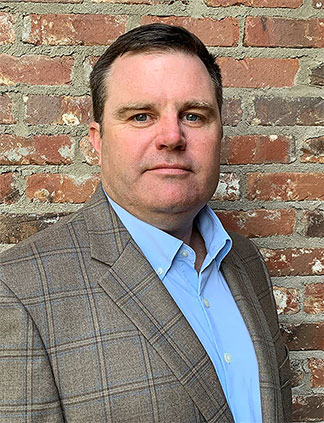5 questions for PERC’s new business development director
The Propane Education & Research Council (PERC) named Bryan Cordill as its new director of residential and commercial business development, replacing Jesse Marcus, in July.

Cordill
Cordill spent 17 years working as a sales manager for his family’s propane business, Cordill Butane-Propane Service, in Louisiana. He was then named business development officer at Ajasent Inc., where he provided cloud hosting services for propane and related service companies. Most recently, Cordill co-founded Proponent LLC – a consulting company – where he worked with company leadership to develop and deploy new strategies.
LP Gas posed five questions to him.
What were your responsibilities over the years with your family’s propane business?
You could say there is nothing I haven’t done. I helped fill cylinders during ice storms as a child and worked as a service helper every summer painting tanks, inspecting and repairing piping systems for local schools, mowing bulk plants, going under houses to run piping because I was the only one who could fit, and anything else my grandfather or dad told me to do. When I came on full time after grad-school, I started in our Blue Rhino division. I was in charge of local sales and all of the setups and new customer training. That is also when I really got involved in purchasing, basically everything but the propane at that time. After I negotiated the transition of our distributorship, I built, opened and grew a new branch for the family. At first, I was the only employee of the branch, doing sales and installations while the building was still under construction. That store grew to be a full-scale hearth and appliance store. I bought and sold everything from small burners to 60-in. gas ranges. It was a lot of fun and gave us a chance to work with builders and developers as well as homeowners and designers.
What motivated you to pursue this position with PERC?
My grandfather started in the butane business in the early 1930s. My father joined him in our company in 1978. I grew up with the members of this industry as our family friends. Our vacations were to propane events, and I’m fortunate to have friends all over the country, and even the world, as a result of being involved in this industry. After we sold the business, I had the awesome privilege of building my consulting company around being a stay-at-home dad. I got a chance to spend time with our daughter and do things like homework that dads don’t always get to do. But the thought of continuing to serve the industry was never far off. When the opportunity to give back to this industry that had given me so much came up, I jumped at the chance to work for PERC.
What do you consider the biggest challenges and opportunities in the residential and commercial markets today?
The good news is there are lots of both. We face a tremendous challenge communicating that the “electrification of everything” does not equal decarbonization. With the mix of fuels that most regions use for electrical generation, and the inefficiencies of the electrical grid, increasing the consumption of electricity in homes and commercial settings for things like heating and water heating actually increases emissions of carbon and greenhouse gases. The opportunity lies in the fact that propane is a great partner in the fight to reduce electrical consumption, and with our clean-energy footprint, we provide customers with not only lower bills and lower carbon emissions but also with warmer and more enjoyable homes and businesses.
Can you share some specifics as to how you plan to grow propane demand in the residential and commercial markets?
The goal is to increase users and uses for propane in the commercial and residential markets. I plan to work with our manufacturing and development partners to bring to market the products our customers desire and that will help us fight electrification. That includes being involved in the ZNE (zero net energy) discussion, the source-to-site discussion, renewables, hydronic heating, desiccant cooling, on-site generation and things that aren’t even on the horizon yet.
As a former propane marketer, and now in your new position, what is your message for today’s propane marketer?
Your competition is not the marketer down the street or in the next county. Our competition is electrification. Be involved in growing new users in your market by offering the things that electricity can’t – warmth, dependability, efficiency and [being] green. At the end of the day, you will be successful and we, together, will have grown the market and demand for propane.

















I agree that electrification is a problem. If we could get the tribes involved in using propane a green energy it could really boost the sales in Oklahoma. I know of a couple programs that they currently have where they are building homes that are all electric. I don’t think they would be against using propane. It could be a matter of contacting the right people to get it started.